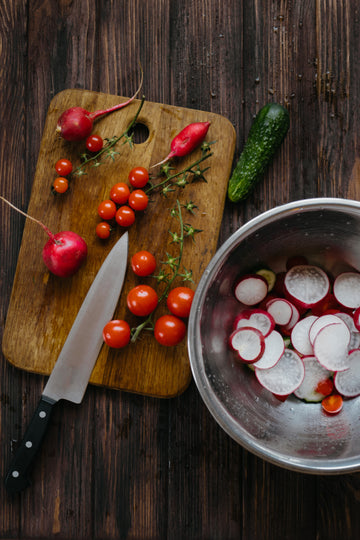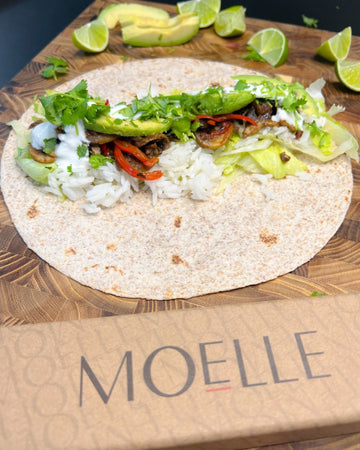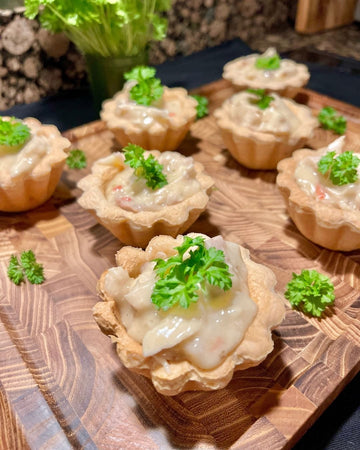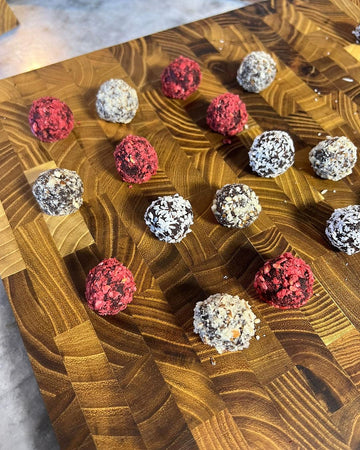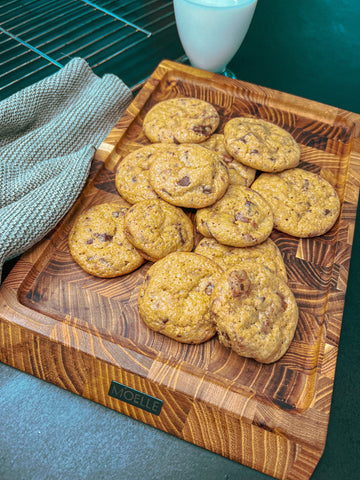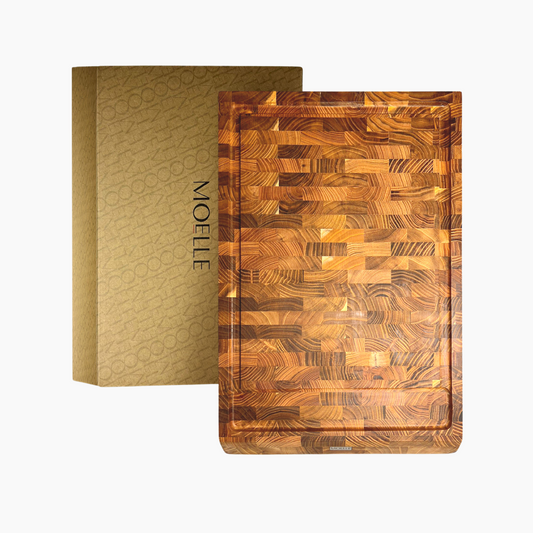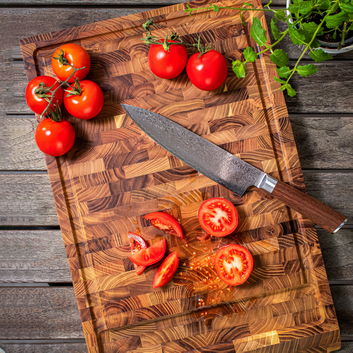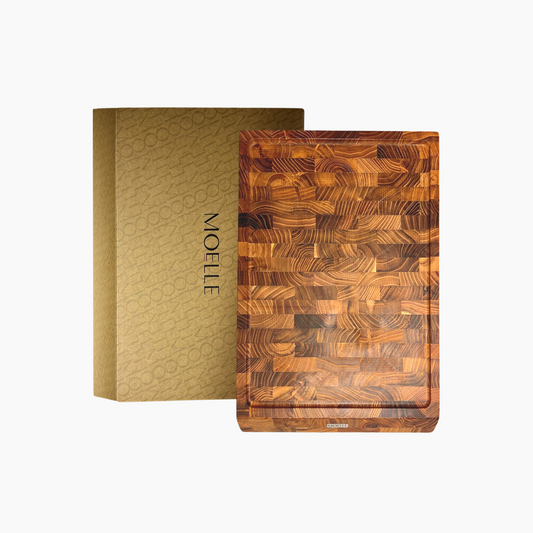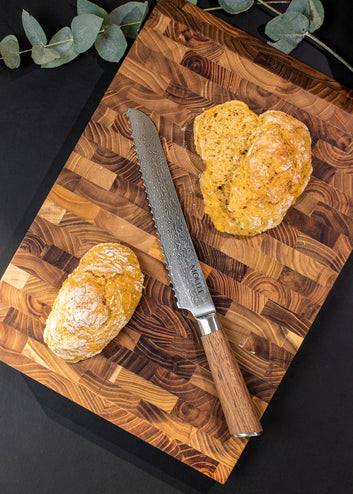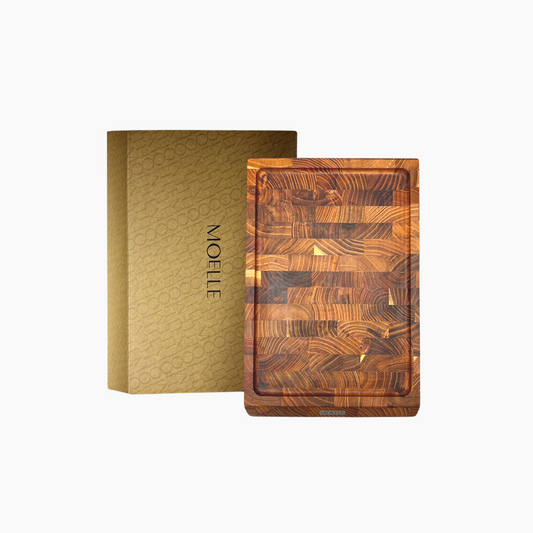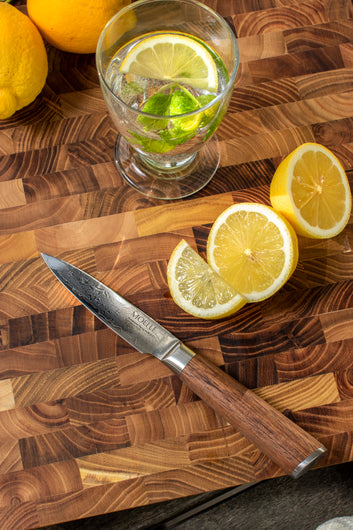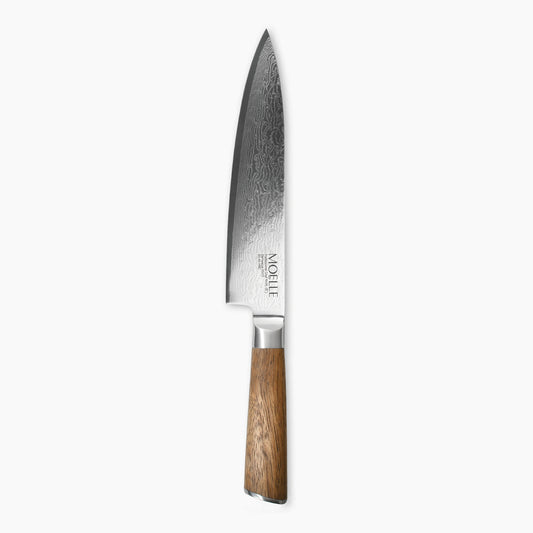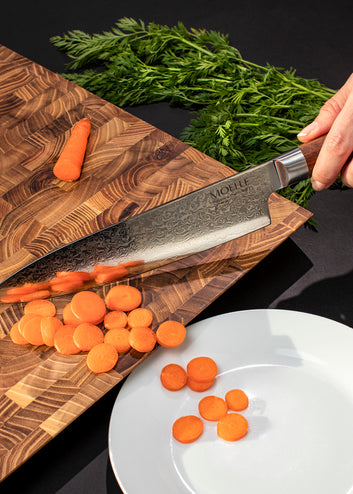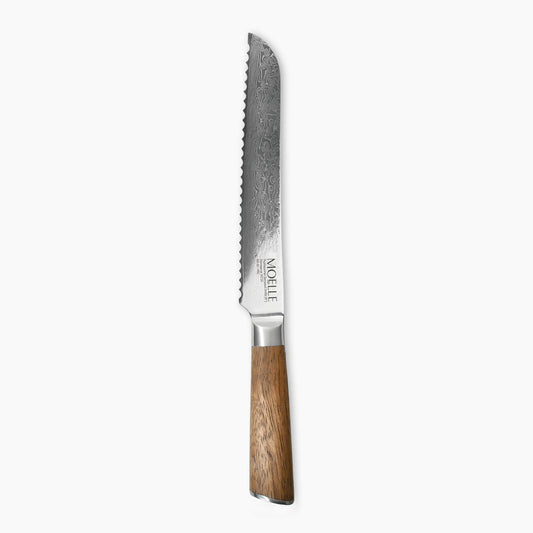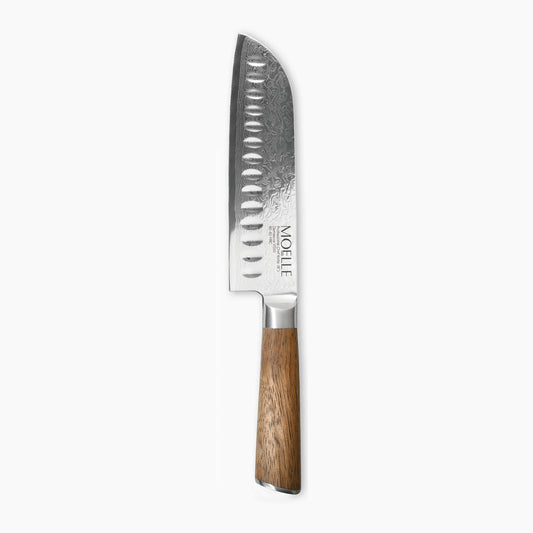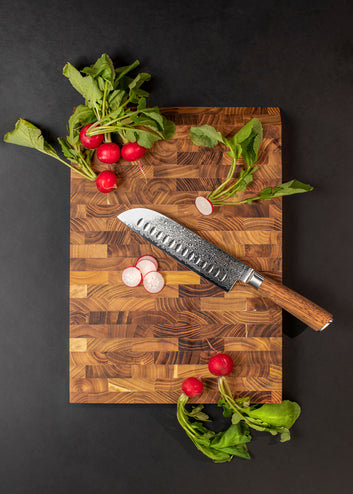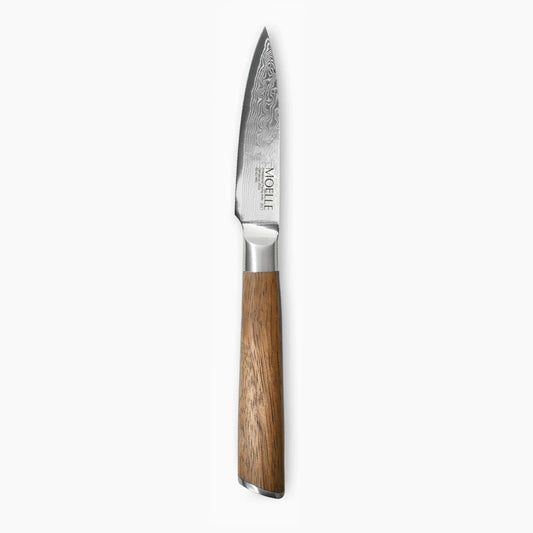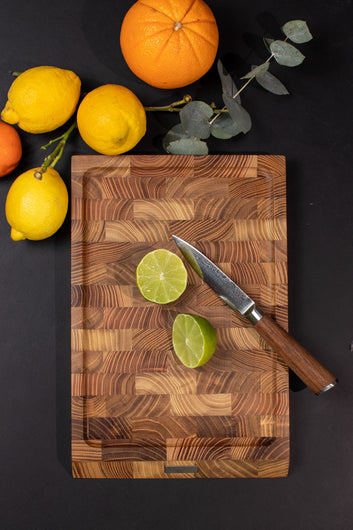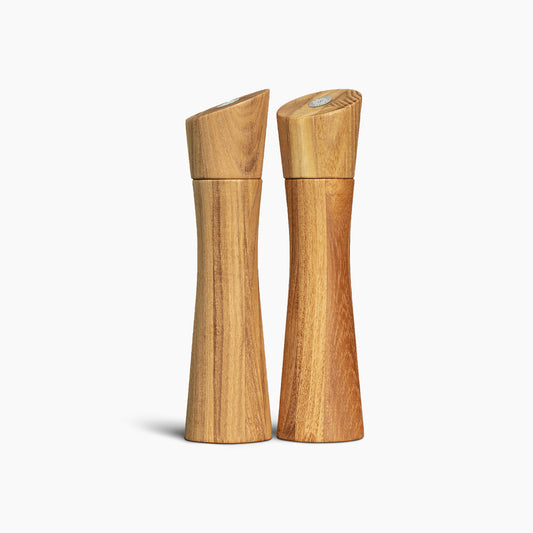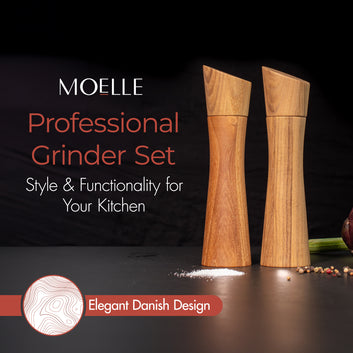Stainless Steel Knives VS Damascus knives
What is Stainless Steel?

Stainless steel is a composite alloy composed primarily of iron, chromium, and carbon, and may include other elements like nickel or molybdenum. The presence of chromium in the alloy confers resistance to corrosion and enhances edge retention.
A higher proportion of chromium signifies heightened resistance to corrosion. Standard-grade stainless steel typically contains approximately 10% chromium, whereas superior quality variants boast 13% or more chromium content.
Prior to acquiring a stainless steel knife, it is imperative to assess its steel grade, as not all stainless steels are created equal. The disparity in chromium content significantly influences the blade's durability and overall lifespan.
Stainless Steel Knife Highlights
Corrosion Resistance
Stainless steel knives stand out for their corrosion and rust resistance. A high chromium content forms a protective layer, ensuring lasting blade quality.
Durability
These knives excel at cutting tough materials like meat. Increased carbon content enhances blade sharpness compared to regular steel.
Versatility
Stainless steel knives are versatile kitchen companions, ideal for slicing, chopping fruits, vegetables, and meat.
Ease of Maintenance
Their corrosion resistance makes maintenance and cleaning effortless, making them a preferred choice for many.
What is Damascus Steel?

Damascus steel is a distinctive alloy with multiple layers, renowned for its captivating wavy patterns etched into the metal. Knives today are often crafted from Damascus round bars or billets.
Historically, original Damascus steel originated from Wootz steel, an ancient Indian metal. Its name comes from Damascus, Syria, where it was widely traded.
Modern Damascus steel blends high-carbon steel for strength and softer stainless steel for flexibility and corrosion resistance. Forging, folding, and hammering create the unique wavy pattern. Knives and jewelry are fashioned from Damascus rods or billets.
The striking pattern and meticulous craftsmanship make Damascus knives prized by both home cooks and professional chefs, commanding higher prices than regular knives.
Characteristics of Damascus Steel
Distinctive Patterns
Damascus steel boasts a unique wavy pattern, a result of folding and hammering during forging. These eye-catching patterns set it apart from other knives.
Material Blend
Quality Damascus steel combines two or more steel types, expertly forge-welded together.
Hardness and Durability
A good Damascus blade rates around 58-64 on the Rockwell scale. While not as hard as some high carbon steel, it offers durability.
Corrosion and Care
Damascus steel is less corrosion-resistant than stainless steel due to its composition. Regular cleaning, drying, and occasional oiling help maintain its longevity.
Maintenance Ease
Due to its susceptibility to corrosion, proper cleaning and drying after use are vital. Applying a thin layer of oil safeguards the blade against rust.
Is Damascus Steel Stronger?
The strength of Damascus steel varies based on the type and heat treatment. It's not inherently stronger than modern steel types.
In current Damascus knife making, laminated blades with a high-hardness single-steel core are common. This core ensures better edge retention. The outer layers add resilience, reducing breakage risk. This blend yields a strong and durable blade. The single-steel core's hardness (HRC) ranges from 58 to 64, based on maker and blade purpose.
Choosing Between Damascus and Stainless Steel Knives: Which One Is Right for You?

Stainless Steel Knives
Stainless steel knives are durable and low-maintenance, handling drops without chipping. They demand less care than Damascus counterparts.
Damascus Steel Knives
Damascus knives are tougher and maintain a sharper edge longer. However, they require proper care to prevent rust.
When to Choose Stainless Steel
Opt for stainless steel if you seek an affordable option with minimal rust risk.
When to Choose Damascus
For an intricately designed, resilient knife with prolonged sharpness, go for a Damascus blade. Online stores offer diverse styles.
In the battle of Damascus vs stainless steel knives, your choice hinges on factors like maintenance preference, durability, and aesthetics.
Conclusion
Each knife type has its distinct strengths and weaknesses. Your ideal choice depends on your specific preferences and needs.
If you value durability and effortless upkeep, a stainless steel knife emerges as the superior selection.
However, if a striking appearance and prolonged edge retention rank high that you can use for a long time, a Damascus knife takes the lead.
Ultimately, your decision hinges on your individual priorities and requirements when it comes to selecting the perfect knife for your culinary ventures.

